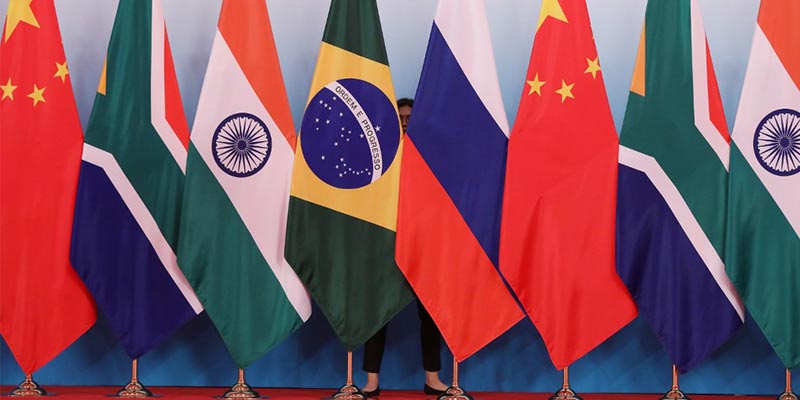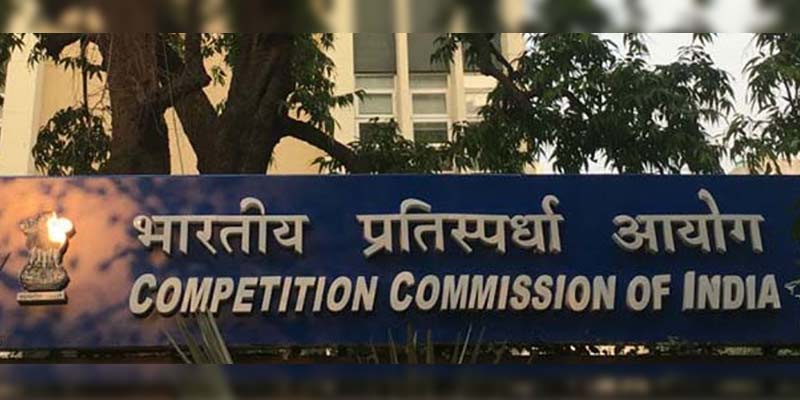- India
- Oct 11
CCI hosts BRICS International Competition Conference
• The Competition Commission of India (CCI) is hosting the eighth BRICS International Competition Conference in New Delhi from October 11 to 13.
• More than 600 delegates from the competition authorities of BRICS and non-BRICS nations, competition law experts, non-government advisors and domestic invitees will participate in the event.
• BRICS ICC is an important event under the framework of the BRICS Leaders’ Meeting and is held biennially by the BRICS competition authorities on a rotation basis.
• It was established at the meeting of the Heads of State of BRICS (then BRIC) countries in Yekaterinburg, Russia, on June 16, 2009.
• The first conference was organised by Russia in September 2009, followed by China (2011), India (2013), South Africa (2015), and Brazil (2017). Russia again hosted the event in 2019, followed by China in 2021.
• The theme of BRICS ICC 2023 is ‘New Issues in Competition Law and Policy – Dimensions, Perspectives, Challenges’.
• The conference aims to discuss various emerging issues and challenges in competition enforcement in BRICS countries and take forward the agenda of cooperation among the BRICS competition authorities.
The BRICS nations
• The BRICS nations or Brazil, Russia, India, China and South Africa form the five key pillars of south-south cooperation and are the representative voice of emerging markets and developing countries in the global forums such as the G20.
• The BRICS represent 41 per cent of the world population, 29 per cent of the global surface area and account for over 24 per cent of the global GDP.
• The acronym BRIC was first used in 2001 by Goldman Sachs in their Global Economics Paper, ‘The World Needs Better Economic BRICs’ on the basis of econometric analyses projecting that the four economies would individually and collectively occupy far greater economic space and would be amongst the world’s largest economies in the next 50 years or so.
• The leaders of BRIC (Brazil, Russia, India, and China) countries met for the first time in St. Petersburg, Russia, on the margins of the G8 Outreach Summit in July 2006. Shortly afterwards, in September 2006, the group was formalised as BRIC during the First BRIC Foreign Ministers’ Meeting, which met on the sidelines of the General Debate of the UN Assembly in New York City.
• After a series of high level meetings, the first BRIC summit was held in Yekaterinburg, Russia on June 16, 2009.
• It was agreed to expand BRIC into BRICS with the inclusion of South Africa at the BRIC Foreign Ministers meeting in New York in September 2010. Accordingly, South Africa attended the third BRICS Summit in Sanya on April 14, 2011.
• In 2014, the BRICS nations established the New Development Bank (NDB). It has an initial authorised capital of $100 billion and initial subscribed capital of $50 billion of which $10 billion is paid-in capital.
• BRICS nations have decided to admit Argentina, Egypt, Ethiopia, Iran, Saudi Arabia and the United Arab Emirates as full members of the grouping from January 1, 2024.
Competition Commission Of India
• The Competition Commission of India (CCI) was established in October 2003 under the Competition Act, 2002 for the administration, implementation, and enforcement of the Act.
• The CCI became functional in March 2009.
• The CCI functions as a market regulator by preventing and regulating anti-competitive practices in the country. It also carries out advisory and advocacy functions.
Objectives of CCI:
i) Eliminate practices having adverse effects on competition.
ii) Promote and sustain competition in markets.
iii) Protect the interests of consumers.
iv) Ensure freedom of trade in the markets of India.
v) Establish a robust competitive environment.
• The CCI consists of a chairperson and a maximum of six members appointed by the central government.
• The Commission is also required to give opinion on competition issues on a reference received from a statutory authority established under any law and to undertake competition advocacy, create public awareness and impart training on competition issues.
What is the process of the CCI inquiry?
The CCI can initiate an inquiry:
i) On its own on the basis of information and knowledge in its possession.
ii) On receipt of an information.
iii) On receipt of a reference from the central government or a state government or a statutory authority.
• Any person, consumer, consumer association or trade association can provide information relating to anti-competitive agreements and abuse of dominant position.
• If the Commission is of the opinion that there is a prima facie case, it shall direct the Director General, appointed under the Act, to investigate the matter and report his findings to the Commission.
• After receipt of the investigation report from the Director General, the Commission may forward it to the concerned parties.
• If the report of the DG does not find any contravention of the Act, the Commission shall seek objections from the concerned parties. After considering the objections received, if any, the Commission may accept the report of the DG, or require further investigation to be made by the DG or make inquiries itself.
• In conclusion of the above broad process, the Commission shall determine whether it is a case of anti-competitive agreement or abuse of dominant position or both and after hearing the concerned parties and pass appropriate orders.
• National Company Law Appellate Tribunal (NCLAT) hears appeals against any direction issued or decision made or order passed by the CCI).
Manorama Yearbook app is now available on Google Play Store and iOS App Store



